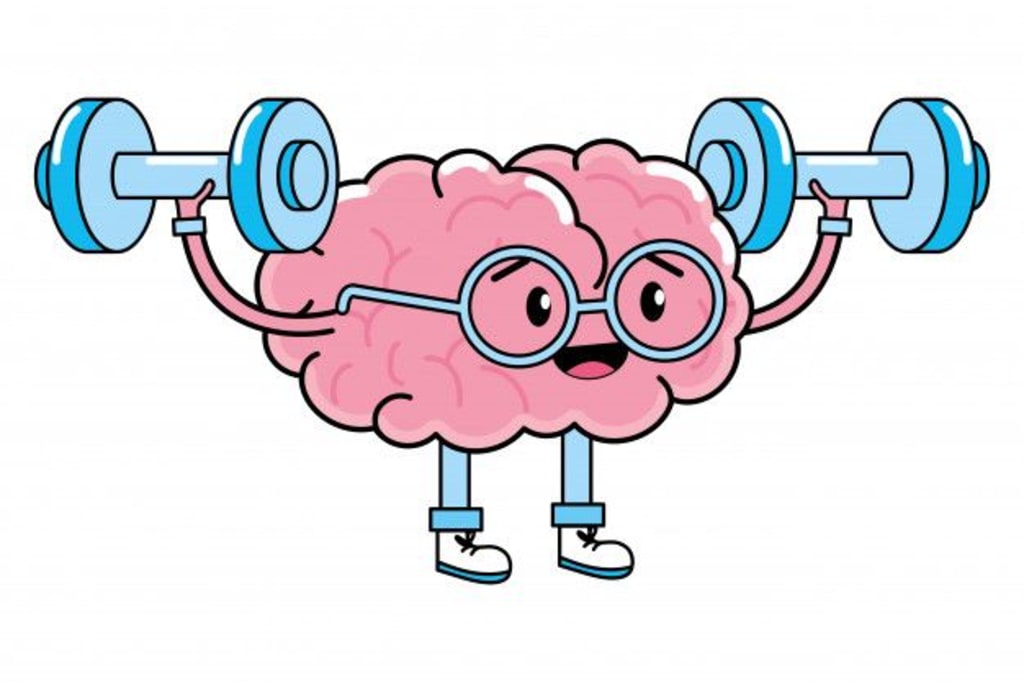How exercise benefits your brain
How Exercise Benefits Your Brain: Enhancing Cognitive Function and Mental Health

We are all aware of the positive impact exercise has on our well-being, yet the underlying reasons often elude us. While many believe it is due to stress relief or the release of endorphins, the true source of our improved mood after physical activity lies in its ability to optimize brain function. In my view, this cognitive benefit far outweighs the physical advantages such as muscle growth or cardiovascular health. The primary goal of exercise should be to enhance and maintain brain health. In a world dominated by technology and screens, it is crucial to remember that humans are designed to be active. Unfortunately, modern lifestyles have led to a significant decrease in physical movement, a stark contrast to our hunter-gatherer ancestors who walked miles each day in search of food. Given the fact that our biology takes tens of thousands of years to evolve, it becomes evident that there exists a significant disparity between our lifestyle and our genetic makeup. In the present day, we have moved away from the practices of hunting and gathering. This not only presents a problem but also poses one of the most significant threats to our ongoing survival. Statistics reveal that 65 percent of adults in America are either overweight or obese, and 10 percent of the population suffers from type 2 diabetes, a preventable ailment caused by inactivity and poor nutrition. Regrettably, we are essentially causing harm to ourselves, and this issue is prevalent across developed nations. What is even more concerning is that our lack of physical activity is not only detrimental to our bodies but also has adverse effects on our brains, leading to their shrinkage. You may wonder why our brain would shrink if we are not engaging in much movement. However, the real question we should be asking ourselves is why we need a brain in the first place. One might argue that our brains are necessary for generating ideas and analyzing various situations. However, the truth is that only a mobile creature requires a brain. The primary function of the brain is to execute intricate motor movements. For instance, a koala used to possess a significantly larger brain in the past. However, as it adapted its digestive system to solely rely on eucalyptus leaves for survival, it required less movement. Consequently, fewer complex movements resulted in a decrease in the size of the koala's brain. This information holds significance because the brain is the one in charge. Contrary to popular belief, the brain is not a fixed organ and can undergo changes. It is adaptable and has the ability to increase in size, similar to any other muscle in the body. In the case of koalas, their brain can also decrease in size. Therefore, it is no surprise that engaging in physical exercise is the best thing one can do for their brain today. Particularly, high-intensity aerobic exercise has proven to be most effective. While powerlifting does benefit the brain, it does not have as powerful an impact as high-intensity exercise. To fully reap the benefits, it is necessary to elevate your heart rate to 80% of its maximum beats per minute. So, what exactly are these brain benefits that I am referring to? Regular physical activity not only prevents brain shrinkage but also enhances the ability to learn and absorb new information. Studies have demonstrated that students who are more physically fit tend to achieve higher scores on tests. Additionally, exercise can reduce feelings of depression, alleviate stress, and even help in preventing cognitive decline and Alzheimer's disease. Women may experience fewer mood swings with regular exercise. If exercise were available in pill form, it would be celebrated as the most effective drug of the century. Unfortunately, it lacks the strong marketing campaigns that some prescription medications have. Despite the effort required, exercise remains one of the most effective treatments for various psychiatric issues. Dr. John Ratey, the author of "Spark," compares exercise to a combination of Prozac and Ritalin. Prozac is an antidepressant, while Ritalin is used to treat ADHD. It is widely known that exercise boosts levels of serotonin, norepinephrine, and dopamine in the brain. All neurotransmitters play a crucial role in influencing thoughts and emotions. However, the use of drugs solely aimed at increasing neurotransmitter levels can result in various side effects. On the other hand, engaging in regular exercise not only increases neurotransmitter levels but also helps maintain a proper balance among them. It is a well-known fact that some women experience intense mood swings during their menstrual cycle, but it is important to understand that these fluctuations are caused by hormonal imbalances. Exercise can mitigate the negative effects of hormonal changes and even amplify the positive ones. Moreover, exercise has a profound impact on learning in general. As you read and listen to this information, the front part of your brain is actively transmitting signals, and the extent to which you absorb this knowledge greatly depends on the presence of a balanced combination of neurochemicals and growth factors that bind neurons together. If you have already engaged in half an hour of exercise this morning, you are in an optimal state of mind to concentrate and focus.Your brain is better equipped to retain more information as a result. In fact, a study conducted in 2007 revealed that individuals learn vocabulary words 20 percent faster after exercising compared to when they are sedentary. All of these benefits can be attributed to a protein called Brain Derived Neurotrophic Factor (BDNF).
BDNF supports the growth of brain cells, acting as a fertilizer for the brain, similar to how plant fertilizer aids in plant growth. It was found in a 2013 study that engaging in just 20 to 40 minutes of aerobic exercise can increase BDNF levels in the blood by 32%. This concept aligns well with the theory of evolution. In the context of our ancestors, the ability to learn was crucial for survival - whether it was to find food and shelter, or to remember which animals to avoid. Movement in the past signified significant events, such as escaping from predators or navigating through unfamiliar territory. Conversely, periods of rest were associated with less critical activities. This ancient mechanism still influences our brains today, where lack of movement may signal that there is no need to learn or remember anything. If you have an important exam approaching, consider going for a run in the park before studying. The increase in BDNF levels can enhance your ability to absorb and retain information. As previously stated, physical activity has the potential to alleviate many of our issues. However, even if you are not facing any problems and believe you are in good health, there is always room for improvement. You can enhance your well-being and enhance your learning capabilities. If you envision your life as a video game, exercise could be seen as a cheat code. The question then arises: how can we achieve optimal results with minimal time commitment? As mentioned earlier, engaging in high-intensity aerobic exercise is the most effective approach. This includes activities such as running, jumping rope, or any exercise that elevates your heart rate to 80% of its maximum capacity. It is even more beneficial if the workout involves intricate motor skills rather than simple repetitive movements. Examples of such activities include tennis and dancing.
About the Creator
Lillian Formelová
Learning how things works is one of my favorite hobby and i decided to share my knowledge with you,so i hope you learn something new!!:3
Enjoyed the story? Support the Creator.
Subscribe for free to receive all their stories in your feed. You could also pledge your support or give them a one-off tip, letting them know you appreciate their work.





Comments (1)
Interesting and delicious content, keep posting more now